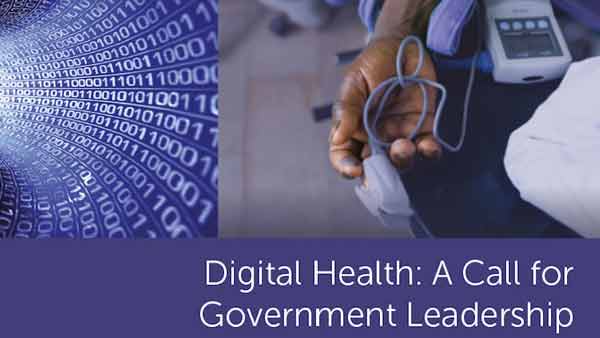
I just recently attended Mobile World Congress (attended by 100 000 people this year) where I am happy to say we released an important report for accelerating digital health: “Digital Health: A call for Government Leadership and Cooperation between ICT and Health”.
I was involved in this work from its inception all the way to contributing this fall to its writing and I am feeling very grateful to the Novartis Foundation and also Nokia for having co-chaired and supported what turned out to be a major collaborative effort with key actors and policymakers of the global digital health ecosystem. One of the reasons I believe this report will have an impact is that it is being released by the Broadband Commission for Sustainable Development which is a highly influential body established in 2010 comprised of more than 50 leaders from across a range of government and industry sectors.
In brief, as the cycle of digital health evolves, there is a growing realization of the fundamental role governments have to play in advancing the use of technology for health. Fragmentation, data interoperability and lack of appropriate legislation and laws are still prevalent, and many of these challenges will not be overcome without stronger government leadership and improved cooperation and coordination between health and ICT authorities (typically ministries of Communication and eGovernment agencies). To give you a striking example of what we mean by fragmentation; there are eleven different mobile health initiatives for maternal and child health funded by different institutions in Mali. Most of these institutions use their own tools and systems which are not interoperable with the current systems used by the national eHealth agency.
For anyone interested in scaling digital health, I therefore highly recommend the read of this report: “Digital Health: A call for Government Leadership and Cooperation between ICT and Health”. Beyond its key recommendations, the report developed case studies in 8 countries that managed to effectively advance the digital health agenda. Those countries are: Canada, Estonia, Malaysia, Mali, Nigeria, Norway, the Philippines and Rwanda. They all provide key insights and lessons which other countries can leverage from. Although not many countries have yet analyzed the impact of digital health on their systems, it is notable for other governments to see that Canada recently estimated that their investments in digital health generated savings of $15 billion since 2007. ITU and WHO established a very comprehensive National eHealth Strategy Toolkit back in 2012 which many governments have already used around the world. Let’s hope this report will do both: motivate countries that have not yet developed such strategies, and support those countries that already developed their strategies and are moving towards the complex task of implementation.
